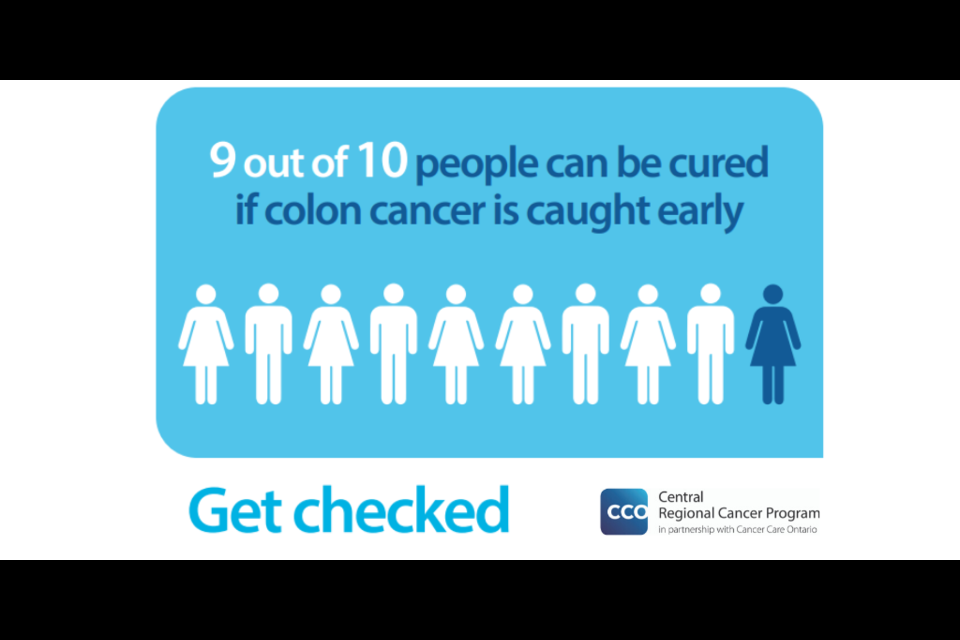It’s Colon Cancer Awareness Month (CCAM). Have you booked your pre screening test yet?
Colon cancer is the second most common form of cancer in both men and women. (Next to prostate for men, and breast for women).
For Ontario specifically in 2019, there were about 9,100 women and men diagnosed with colorectal cancer and about 3,150 will have died.
The actual incidents of colorectal cancer have actually been decreasing over the past two decades due to improvements in screening and treatment.
The number of colon cancer being diagnosed in those under 50 is increasing, but the overall risk for anyone under 50 is very low and anyone with a history of colorectal cancer in their family should be screened at age 45.
Only about five to ten percent of colorectal cancer cases are hereditary, with the biggest risk factor is aging. Ninety percent of colon cancers are found in people over the age of 50.
If a person has a history of colitis, they may be at a higher risk of developing colon cancer or if they have been diagnosed previously.
“There’s nothing you can do about getting older but there are definite lifestyle factors to lower our risk,” said Dr. Marla Ash, Regional Primary Care Lead, Central Regional Cancer Program.
Ash says having a healthy body weight and being physically active is one way to lower your risk, as well as minimizing your intake of red and processed meats. Not smoking, and low alcohol intake can also reduce your risk.
The key is screening and catching it early.
"We’re really trying to raise awareness of screening. It’s about 37 percent of the region overdue for their screening right now," said Ash.
Last summer, new home based screening tests were launched that look for blood in the stool. It is twice as accurate as the previous home tests, with no diet or medication restrictions. It comes by mail to the patients, and is ordered by primary care providers.
Although a lot of these screening tests are being sent out, the program noted that many are not being returned. The Central Regional Cancer Program encourages anyone not receiving their tests to get in touch with LifeLabs.
If a test is positive, then it is important patients schedule a colonoscopy. If colorectal cancer is found in an early stage, it is curable 90 percent of the time.
Lisa Rhodenizer, BPH, PMP, Coordination Advisor, Health Promotion with Central Regional Cancer Program - Prevention & Screening, says there are multiple ways to get involved this month to help raise awareness about the screening tests.
The CCAM team will be offering education points through workshops as well as a scavenger hunt posted on their social media, for people to get engaged and become more aware of the screening process.
To learn more, visit the Central Regional Cancer Program Screening and Prevention Facebook page here.
